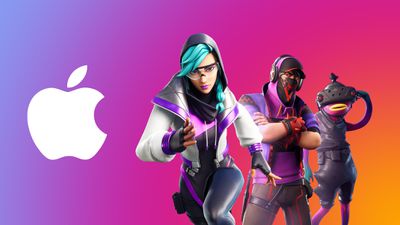Today marked the kickoff of the third week of the Epic Games v. Apple trial, and this week is notable because Epic has finished with its witnesses and we're now transitioning to Apple witnesses, including notable Apple executives.

Apple Fellow and former marketing chief Phil Schiller, who is in charge of the App Store, took the stand today. Schiller will testify for up to nine hours, and will see the most questioning out of all of Apple's witnesses.
Schiller's hours of commentary will see him explaining just how the App Store works, the value of the App Store and Apple's SDKs, and why it's important that the judge side with Apple to maintain security and privacy for customers.
Questioning today started with the history of the iPhone, where Schiller made sure to say that security and privacy were the "most important" considerations when developing the iPhone. "This new computing device in your pocket means it's capable of new things," he said. "It's going to store information around our lives that we aren't used to having in our pocket."
Schiller covered how the App Store was set up from the beginning. The iPhone's software is "part of the product" that Apple creates, which is very different from Android, which is licensed to device makers. This licensing model "reduces quality" and the "speed of innovation," Schiller said in defense of Apple's setup.
Early questioning covered the transition from Apple-only apps on iPhone to third-party app support, and the security and privacy risks that Apple had to contend with. After the launch of the iPhone, Apple heard from developers that they wanted to create native apps, which Apple viewed as the first "demand for quality and security" on iPhone.
Apple has always been concerned about jailbroken apps and rogue app developers creating content without documented APIs, which could lead to "unreliable, unstable devices." He pointed out the importance of protecting users from malware to keep devices functioning. "This is your phone in your pocket that needs to work reliably," he said.
Schiller has also been speaking about Apple's App Store policy to treat developers large and small the same, and his testimony has included some interesting little tidbits. Apple wanted to charge $99 for the App Store developer program to prove that an app that's being worked on is "important" and that developers are "serious about making a quality app."
Notably, Schiller said that it costs Apple $50 million for every Worldwide Developers Conference event that it puts on annually, which was used as evidence that Apple's App Store profit margins are not as high as Epic Games has implied.
Schiller also said that 17 percent of the hundreds of thousands of games on the App Store use the freemium model, which was another interesting tidibt that was shared. 75 percent of games are free to download, and six percent require a payment.
On the topic of physical goods, Schiller said that in 2019, the App Store drove $400 billion+ in transactions like food delivery, Amazon purchases, Uber, and more, which are not subject to a 30 percent cut. According to Schiller, Apple does not take a cut of physical purchases because Apple can't guarantee they will actually arrive.
We'll undoubtedly hear additional interesting details from Schiller as his testimony continues, and later this week or early next week Apple CEO Tim Cook is expected to take the stand.























